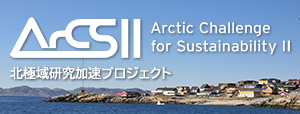2022年9月20日、北極域研究センター(HU ARC)では月例セミナーがハイブリッド式で開催され、次の2人の講師から発表がありました。まず、Evgeny Podolskiy(ポドーリスキー エフゲーニー)博士が「Summer with narwhals, the unicorns of the sea」というテーマで自分のフィールド体験について語り、参加者にめったに見ることができないこの生物を垣間見るだけでなく、その歌をも聴くという貴重な機会を提供しました。次に、Marina Lomaeva(ロマーエヴァ マリーナ)氏は、北極と北方圏との長期にわたる個人的・学術的な関わりとHU ARCのJuha Saunavaara(サウナヴワーラ・ユハ)助教との共同研究の概要について述べました。後者は、北太平洋地域(日露米加)のオットセイやその他の海洋生物の保護管理、並びに、北海道と日本の北極への取組みという2つの領域における非国家主体の役割が主要なテーマとなっています。


| 日時 | 2022年9月20日(火)15:00-16:30 |
| 場所 | 北海道大学創成棟4階セミナー室B・C |
| 開催形式 | オンラインとのHybrid | 参加者 | 20名(うちオンライン13名) |
| 講師1: Evgeny Podolskiy(北極域研究センター) Presentation Title: Summer with narwhals, the unicorns of the sea Abstract: Many people do not even realize that there is such a mysterious creature, a small whale called narwhal. Due to extremely narrow cold-habitat preferences, this endemic Arctic mammal is considered one of the most susceptible to climate change. Will narwhals disappear before we even understand them? To learn more about the largest subpopulation of narwhals in Greenland, this summer I traveled to the northwest part of the island for fieldwork. I use this opportunity to tell you about my recent and ongoing studies on narwhals and their icy habitats. |
|
| 講師2: Marina V. Lomaeva(北極域研究センター) Presentation Title: Marine living resource management in the North Pacific and the role of non-state actors: The case of the Northern fur seal Abstract: The North Pacific is a region rich in marine living resources, which have been the object of conflict and cooperation between its coastal states: Japan, Russia, the United States, and Canada. Since the late 19th century, international regimes for conservation and management of the Northern fur seal, salmon and trout, and walleye pollock in the Bering and Okhotsk seas have emerged in that region. As Putnam’s “two-level game” metaphor suggests, negotiations for these regimes had to be conducted simultaneously at the international and domestic levels. For instance, with respect to the fur seal, at the international plane, the US and Russia with jurisdiction over the breeding islands had to convince Canada and Japan with pelagic sealing fleets to submit to regulations in exchange for a share in profits from land sealing. At the domestic level, each state had to interact with its non-state actors, such as sealing and fishing companies, social activists representing the early environmental movement, and scientists (who had very divergent views on factors affecting seal populations). In view of a growing recognition of the role of non-state actors, the well-documented history of the fur seal regimes offers a good opportunity for a case study of the previously overlooked role of non-state actors in the creating, developing and dismantling marine wildlife conservation and management regimes (particularly, its understudied Northwest Pacific part, involving Japan and Russia). This case study will also provide a glimpse into regional environmental governance mechanisms in the North Pacific. |
|
※一般参加の募集、資料などの配布は実施しておりませんのでご了承下さい。








